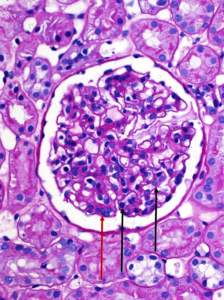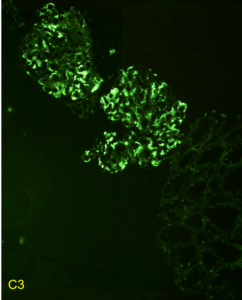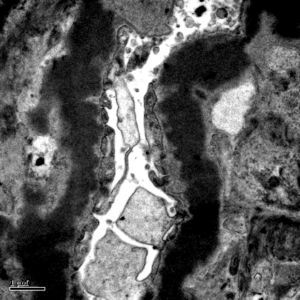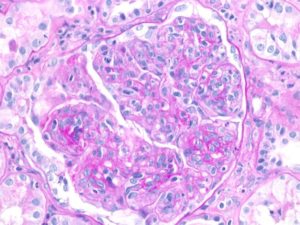A normal appearing glomerulus (left) compared to a glomerulus with endocapillary hypercellularity (right). Note the hypercellular capillary loop (red arrow) compared to the normal capillary lumens (black arrows). This histologic feature can be seen in several glomerular disorders, including IgA nephropathy, post-infectious glomerulonephritis, lupus nephritis, and C3 glomerulopathy. Images courtesy…
Read MoreImmunofluorescent staining pattern in a patient with C3 glomerulopathy. There is strong C3 staining in the capillary loops and mesangium. Immunoglobulin staining, such as IgG, is typically absent or at a lower intensity by at least two orders of magnitude than C3. Images courtesy of Patrick Walker, MD.
Read MoreDense deposit disease on electron microscopy in a patient with C3 glomerulopathy. This lesion results from intramembranous transformation of the glomerular basement membrane by sausage-like, “osmiophilic” dense material. Images courtesy of Patrick Walker, MD.
Read MoreMembranoproliferative pattern of glomerular injury in a patient with C3 glomerulopathy. This pattern of injury typically has endocapillary proliferation, diffuse capillary wall thickening, increased mesangial matrix, and mesangial proliferation visible on light microscopy, producing a lobular appearance of the glomerular tuft. Images courtesy of Patrick Walker, MD.
Read More






